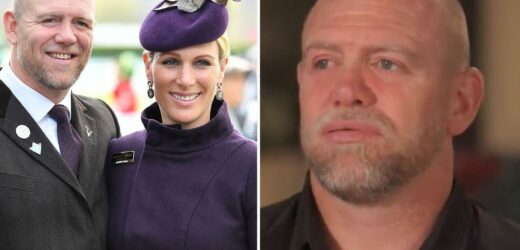AN emotional Mike Tindall has opened up about his father's heartbreaking battle with Parkinson's.
The England world cup rugby winner also praised his "brilliant" wife, Zara Tindall, who he married in 2011.
🔵 Read our Royal Family live blog for the latest updates
Mike, who is a patron of Cure Parkinson’s, spoke in a rare royal engagement about his father, who was diagnosed with the disease in 2003.
The 42-year-old revealed he had visited his dad for the first time this year.
Speaking about his father's diagnosis, he told BBC Breakfast: "It didn't really dawn on me what Parkinson's was.
"If you looked at people who were prevalent with Parkinson's at the time you'd say Muhammad Ali.
DAD'S PARKINSON'S BATTLE
"And you looked at my dad and Muhammad Ali and, well, it's not the same person, surely it's not the same disease."
He added: "When we got married in 2011, some time around then, you could see the effects were staring to grow on him, in terms of, he's a smaller man than he ever was at the moment.
"Curvature of the spine and he had to have surgery on that. Slowly, over the last ten years there have been loads of other problems that have come across because of it".
And he hailed "brilliant" wife Zara for her support since his dad's diagnosis.
Mike added:"She gets it and sort of keeps me on my toes…in terms of finding out more about new drugs that are coming out, new trials and everything else".
The ex-rugby player, who has long campaigned to raise awareness, has been fundraising for Cure Parkinson’s with a 750km bike ride.
He has previously revealed the emotional impact Parkinson's disease has had on his father.
In March, Zara given birth to their third child – a baby boy named Lucas Philip Tindall in a touching nod to the Duke of Edinburgh.
His dad struggles to carry out everyday tasks such as buttoning his shirts or picking up pens.
Mike added: "He gets really frustrated and can get angry. And with Parkinson's you sometimes lash out.
"You can do anything because that's just part of the side effects."
Some 145,000 people in the UK are living with the disease and were identified as being clinically vulnerable to Covid-19, with an added risk for the majority who are over 70.
Source: Read Full Article






